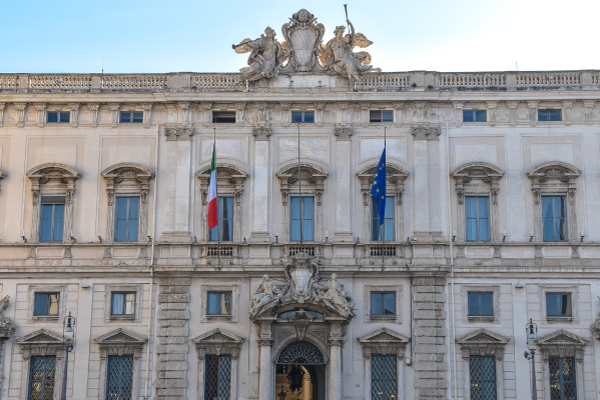The state and not the regions decide against the pandemic. Word of the Constitutional Court

The Constitutional Court has made it clear that the management of policies against epidemics is the responsibility of the state. The whole debate on Title V thus becomes specious. The in-depth study by Massimo Bordignon and Gilberto Turati for LaVoce.info
A VERY CLEAR HIERARCHY
The sentence of the Constitutional Court regarding the regional law 11/2020 of the Autonomous Region of Valle d'Aosta definitively clarifies a fundamental question, as also emphasized by authoritative jurists. The law of the Val d'Aosta imposed measures to combat the Covid-19 epidemic different from those provided for by state legislation. The ruling of the Consulta establishes instead that the management of policies to deal with the pandemic falls within the "international prophylaxis" and not in that of "health protection". This means that, according to article 117 of the Constitution, it is a matter of exclusive competence of the central state and not a matter of concurrent legislation between state and regions. In a nutshell, in the field of policies to combat epidemics, the state commands and the regions obey. Or at least so it should be on the basis of the distribution of competences as defined by the Constitution.
The conclusion of the Constitutional Court is not surprising in light of the reading of the National Pandemic Plan, where this hierarchy is obvious and reiterated; so much so that we too, who are not jurists, had noticed it in previous articles.
A POLITICAL CHOICE
The Constitutional Court ruling has a number of important implications, both for the interpretation of the recent past and for the future. In the first place, the whole debate that has been unleashed in these months of pandemic on Title V, that is, on the constitutional reform that in 2001 gave more legislative powers to the regions, is misleading. There may, of course, be other reasons for deciding to revise Title V; but the conflictive management of the pandemic between state and regions cannot be attributed to the latter. The rules are there and they are clear; and would have allowed a more unitary management of interventions against Covid from the beginning (from the re-organization of hospitals to the administration of vaccines); unitary management, which is largely lacking.
It also seems difficult to argue that the government did not follow this path because it lacked appropriate legal expertise; if there is one thing that the Italian bureaucracy, lacking in many other fields, is not lacking, it is the good jurists. Why then did the government prefer to follow a different path? The reason is probably political. A weak government, supported by a center-left coalition, did not feel like fighting with regions largely under the control of the center-right, moreover with presidents strongly legitimized by direct election. He therefore preferred to seek the path of "institutional collaboration" which, among other things, has allowed the two levels of government to practice the game of the match, discharging responsibilities on him in alternating phases. If this meant, and still does, a cacophony of proposals and policies against the pandemic, then patience.
Looking to the future, two considerations arise. First, as far as the pandemic is concerned, the hope is that the legislative clarity imposed by the Constitutional Court ruling and the fact that the government is now supported by an extraordinarily broad coalition will allow for a more unitary and efficient management of law enforcement policies, especially in the current crucial phase of vaccine distribution. The risk, on the other hand, is that the tensions over the painful choices that in any case will have to be taken, in the past limited to the conflict between state and regions, now extend within the government, with the effect of generating cross vetoes and blocking decisions. We trust in the action of the Prime Minister to prevent this from happening.
Second, the Italian institutional system still needs to be rethought. We need a clearing house for conflicts between the center and the peripheries (not only the regions, but also the municipalities). Once the hypotheses of the Federal Senate or the Senate of the Regions have disappeared, with the failure of the last two proposals for constitutional reform (2006, 2016), other solutions must be sought and found. Starting with a strengthening of the role of the Permanent Conference for relations between the state and the regions. We are looking for constitutionalists and political scientists for a contribution in this direction.
Article published on LaVoce.info, here the full version.
This is a machine translation from Italian language of a post published on Start Magazine at the URL https://www.startmag.it/mondo/contro-la-pandemia-decide-lo-stato-e-non-le-regioni-parola-di-corte-costituzionale/ on Sat, 06 Mar 2021 05:10:51 +0000.
